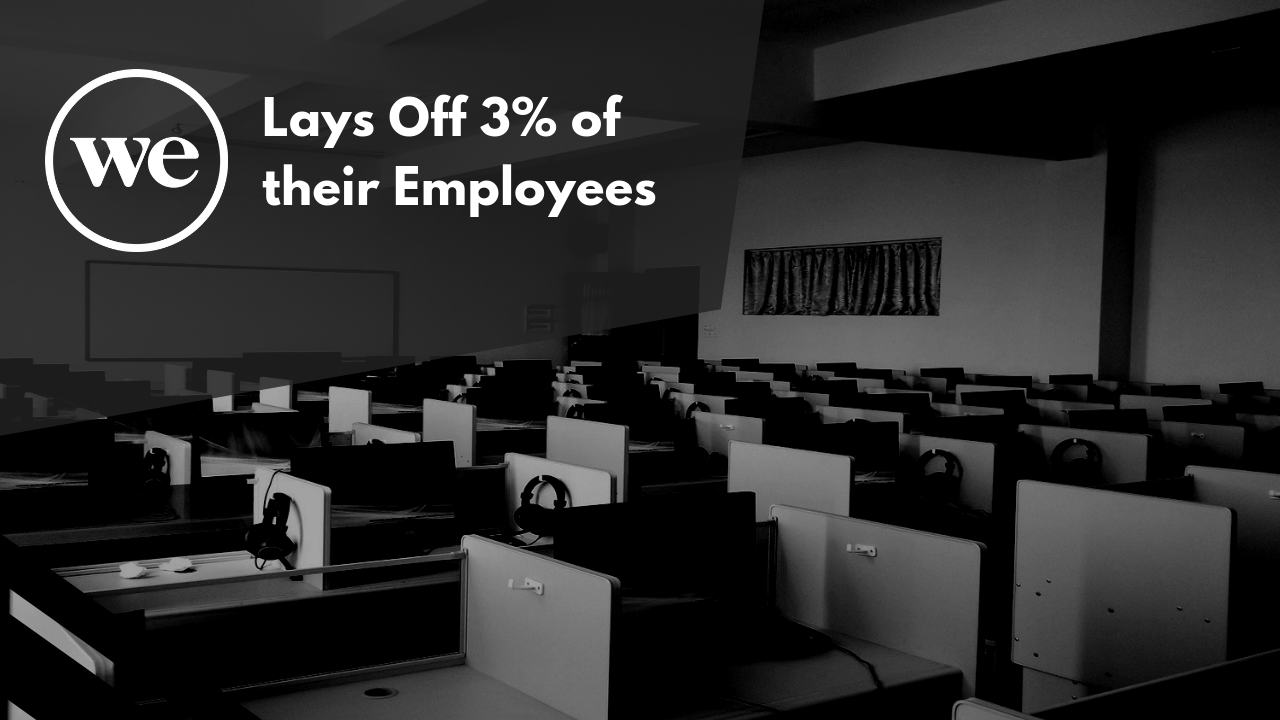- WeWork’s parent company, the We Company, has made as many as 300 employees redundant.
- All of the firm’s three divisions have been affected: WeWork, WeLive, and WeGrow.
- However, the We Company claims that the layoffs are performance-related and that it plans to hire 6,000 employees this year.
According to a recent report by The Real Deal, WeWork’s parent company, the We Company, has laid off as many as 300 employees, which represents about 3% of its global workforce.
It also represents the coworking giant’s biggest layoff since WeWork was founded in 2010.
Employees were laid off across We Company’s three divisions: WeWork, WeLive, and WeGrow.
The news comes just a couple of months after SoftBank slashed its investment in WeWork from $16 billion to $2 billion. The We Company claims that the layoffs have been performance-related and that it plans to hire 6,000 employees this year.
In 2016, the coworking giant cut back 7% of its entire workforce. Back then, the company also claimed the layoffs were performance related. Soon after the announcement, WeWork slashed its earnings prediction from $65 million to $14 million.
Suggested reading: “We Company Looking at an IPO”
Nonetheless, the We Company stated that it will continue to grow this year. “The firm has signed a series of big deals this year, including a 200,000-square-foot lease at 199 Water Street, and leases for 110,000 square feet across four locations for its HQ by WeWork platform, a service that provides spaces for companies without WeWork branding,” The Real Deal wrote.
Still, the We Company has had a rough start to 2019.
Not only did SoftBank slash its investment, but key investors of SoftBank also hinted that they believe the company is overvalued, which could hamper the We Company’s rumored IPO, as it would make it harder for the company to justify its $47 billion valuation.
Additionally, WeWork’s bonds have been trading subpar at 86 cents on the dollar, and it has yet to become a profitable company. WeWork has, and continues to heavily rely on, external investment to power its growth. SoftBank committing less than 15% of its original $16 billion offer is likely to have affected the company’s balance sheet and cash distribution.



 Dr. Gleb Tsipursky – The Office Whisperer
Dr. Gleb Tsipursky – The Office Whisperer Nirit Cohen – WorkFutures
Nirit Cohen – WorkFutures Angela Howard – Culture Expert
Angela Howard – Culture Expert Drew Jones – Design & Innovation
Drew Jones – Design & Innovation Jonathan Price – CRE & Flex Expert
Jonathan Price – CRE & Flex Expert












